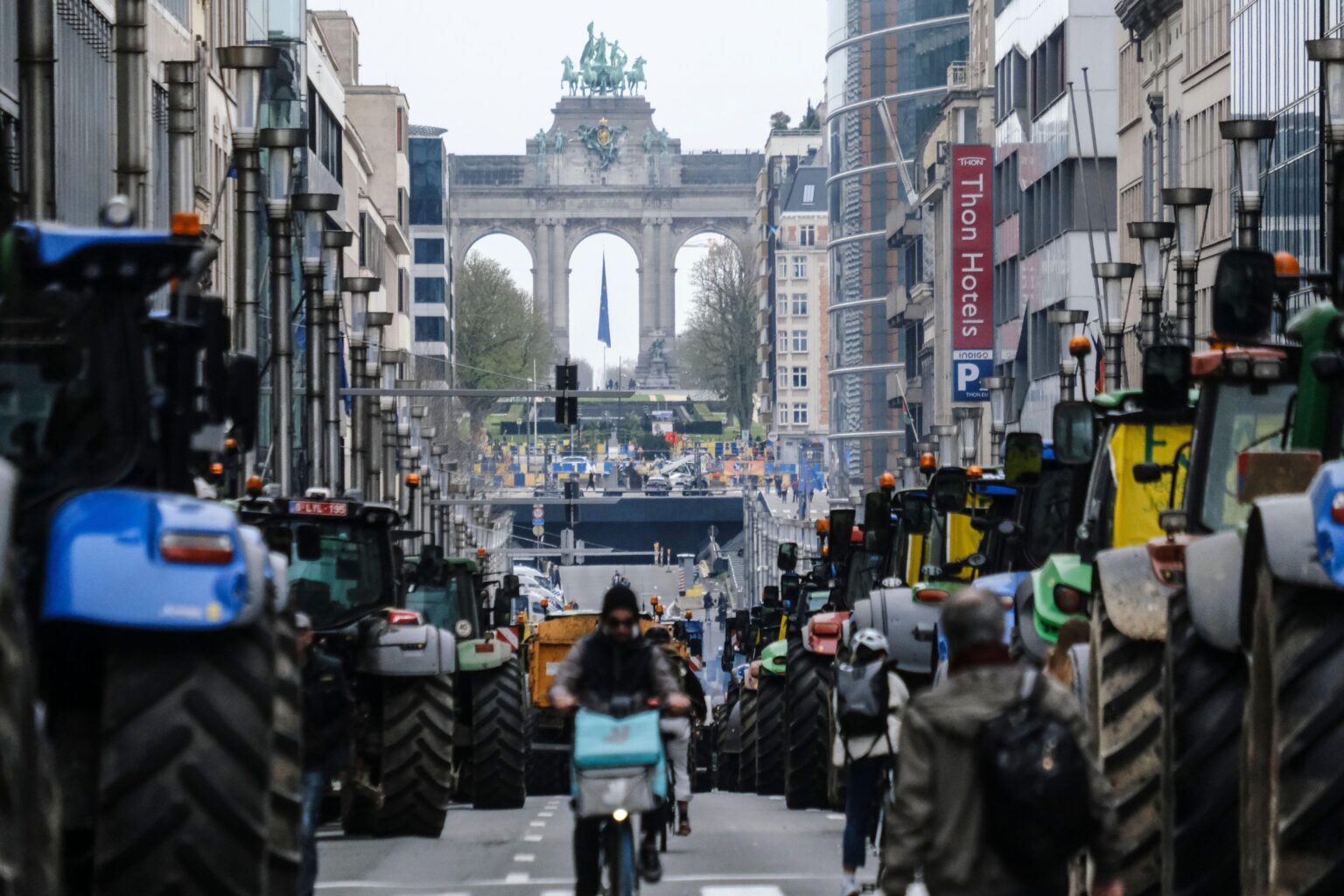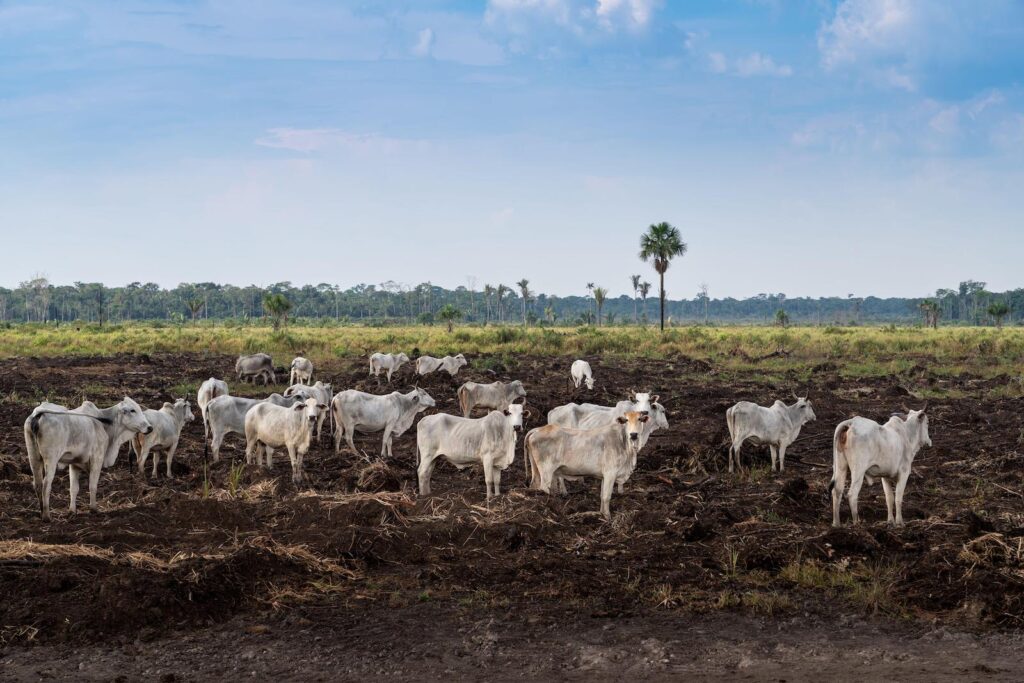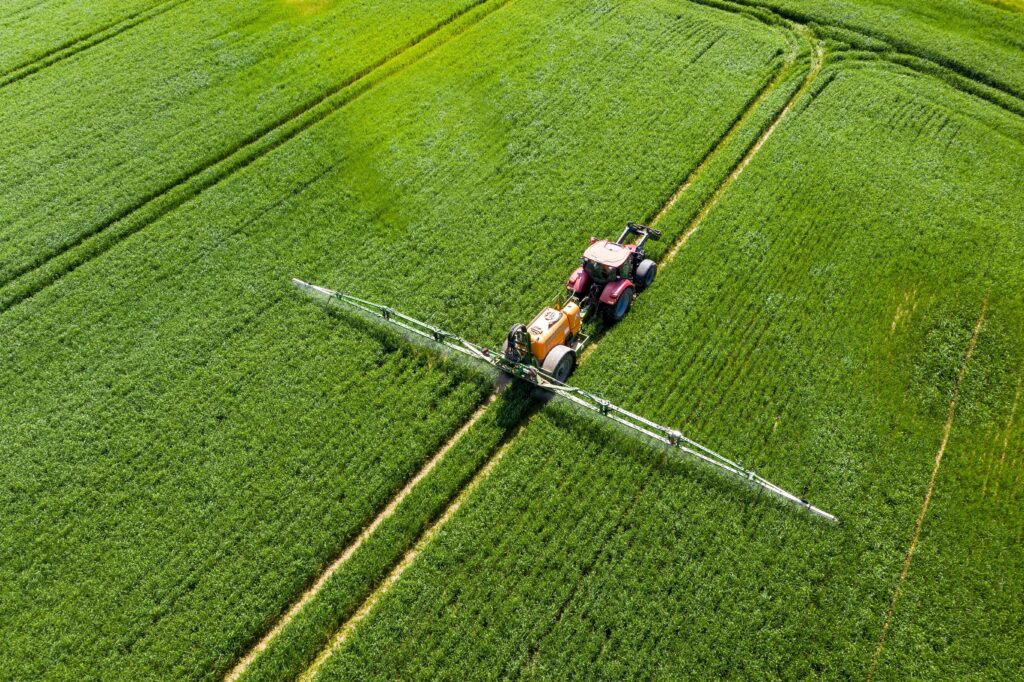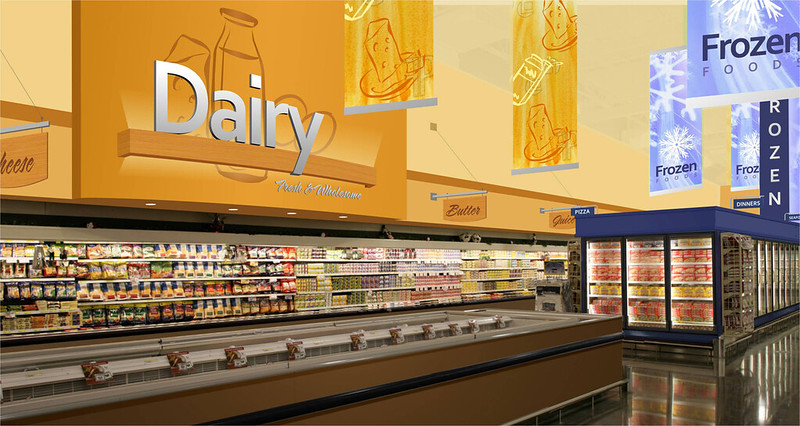This investigation was coordinated by Le Monde and the nonprofit research organisation ARIA, in partnership with Transparency International EU and seven European media: De Tijd (Belgium), L’Espresso (Italy), der Spiegel and ZDF (Germany), der Standard (Austria), El Confidential (Spain) and DeSmog.
An animal feed consultant, a farming union president, and a Big Dairy stalwart are among the “conflicted” members of an influential committee tasked with shaping the EU’s agricultural policies over the next five years.
A new database of interests published today (12 December) reveals the vast range of side jobs, financial, and institutional conflicts of interest of the 720 MEPs elected in June’s European elections.
The research shows that in addition to their annual salary of 100,000 euros, three quarters of MEPs have registered some sort of side activity, while nearly a third declared at least one income-generating activity, collectively estimated at an annual income of 6.3 million euros.
Subscribe to our newsletter
Stay up to date with DeSmog news and alerts
DeSmog, working as part of a consortium of European media outlets, identified a number of interests and side jobs registered by the MEPs on the newly formed committee on Agriculture and Rural Development (Agri) that could potentially exert undue influence.
The 49-strong Agri committee – which includes at least 10 MEPs who are also farmers – will have a key role over the five-year term, including shaping the EU’s Common Agricultural Policy (CAP). The system of farming subsidies currently makes up more than a third of the bloc’s budget and is widely considered in urgent need of reform, with over 80 percent of subsidies going towards emissions-intensive animal products.
The previous committee faced criticism for blocking action on livestock emissions and voted against the Nature Restoration Law, a key pillar in the EU’s Green Deal to slash emissions by over half by 2030. Campaigners fear the current cohort may also be subject to external influence that could influence their activities.
“It is alarming to see powerful corporate actors tightening their grip on the European Parliament, just as critical decisions loom on the future of European food systems and the next €50 billion per year Common Agricultural Policy,” Olivier De Schutter, co-chair of sustainable non-profit group IPES-Food, told DeSmog.
“These decisions will shape our environment, health, and farmers’ livelihoods, and must serve the public interest alone. MEPs entrusted with making these decisions must be seen to be independent from the vested interests of big agri-food corporations – and right now they’re clearly too close.”
Big Dairy, Big Beef
The interactive database of MEPs’ interests reveals several members of the Agri committee with close connections to the polluting intensive agriculture industry, which accounted for 12 percent of the EU’s greenhouse gas emissions in 2022.
They include Danish MEP Asger Christensen, who has a long employment history with Arla Foods. The cooperative, which has 8,000 members across seven European countries, is the world’s fourth largest dairy company based on the volume of milk produced.
Under EU rules, MEPs are required to declare their affiliations and professional work held in the three years prior to the start of the new legislature. Policymakers are also required to declare any conflicts of interest before speaking or voting in parliament.
Christensen, who has served as an MEP in the liberal Renew Europe grouping since 2019, held a seat on Arla’s board of representatives for a monthly fee of 150 euros. His LinkedIn profile indicates he left the company this year, though the CV published on his European Parliament profile suggests he still occupies the role.
Christensen did not respond to DeSmog’s requests for comment or clarification around the apparent discrepancy.
Analysis of the database reveals Christensen declared two meetings with the company since May 2023, and a further 10 meetings with the Danish Agriculture and Food Council (Landbrug & Fødevarer), of which Arla is a member. This included one meeting since the start of his second mandate, held on 10 October on the subject of “AGRI priorities/CAP”.
In his previous mandate as a member of the Agri committee, Christensen worked on several files relevant to the dairy industry, including the sustainable food Farm to Fork Strategy, and the EU’s strategy to reduce methane emissions.
A July 2024 report by the campaign group Changing Markets Foundation found that Arla was one of three major dairy companies which spent more on advertising than on research and development into sustainable solutions across their business.
DeSmog has previously reported how intense lobbying by the meat and dairy industry has significantly hindered EU climate policies aimed at reducing greenhouse gas emissions from agriculture.
Christensen was already flagged for a potential conflict of interest in the last mandate for working on agricultural policies as a farmer, according to reporting by Mediapart and Politico. His declaration of interests states that he retired from dairy farming in July 2024.
According to his LinkedIn profile and CV, Christensen also worked as a representative of Danish Crown between 1998 and 2019. The company describes itself as “Europe’s largest pork producer and among the top five producers of beef in Europe”.
Academic research by environmental social scientist Professor Jennifer Jacquet published in 2021 found that the combined annual greenhouse gases of Arla and Danish Crown were equivalent to 68 percent of Denmark’s national emissions – and would exceed the country’s carbon budget as agreed under the Paris Agreement.
Animal Feed Consultant
Agri member Jessika van Leeuwen, a Dutch MEP from the agrarian populist party BoerBurgerBeweging – who sits with the centre-right European People’s Party grouping in the European Parliament – has spent her career working in the animal feed industry, most recently at Hamlet Protein. The company, which is headquartered in Denmark, sells soy-based specialty feed for young piglets, calves, chickens, and fish.
The updated database of interests reveals van Leeuwen was employed until July 2024 as a ‘global swine manager’ at Hamlet Protein, receiving a salary of 114,000 euros a year. She is currently paid 1,300 euros a month as a consultant at the firm.
At the same time as having these connections with the animal feed industry, van Leeuwen has used her platform as an MEP to call for continued support of meat and dairy products, while attacking the EU’s Green Deal.
She made her views clear in September at a debate on the Strategic Dialogue on the future of agriculture in the EU, a forum launched by European Commission President Ursula von der Leyen at the start of 2024.
“It is a missed opportunity that the report uses food to force the unrealistic ideas of the Green Deal down the throats of European citizens,” van Leeuwen told fellow policymakers.
The strategic dialogue’s final report backs the EU’s Farm to Fork programme, a core strategy of the Green Deal that aims to make food systems more fair, healthy and environmentally friendly, and calls for a transition to a more plant-based diet with less red and processed meat.
“Meat, fish, dairy and eggs from Europe are and will remain a healthy source of protein,” she added. “Give our farmers the chance to continue producing animal proteins for Europe and the growing world population.”
The success of Hamlet Protein’s soy-based feed appears to rely on an expansion in the global consumption of meat and dairy.
In its 2023 annual report, the company directly linked the growth of “safe and affordable meat, dairy and egg products” with “demand for high quality specialty feed protein” such as that supplied by the firm. The report adds that its growth is “supported by long-term structural mega trends such as population growth, transition from backyard farming towards more industrialized farming practices”.
The use of artificial fertilisers and pesticides in intensive agriculture is highly polluting, as well as deeply inefficient in producing food. More than three-quarters of global soy is fed to animals, with global production – which is linked to deforestation and destruction of natural habitats – exploding over the past 50 years in line with increased meat production and consumption.
Hamlet Protein did not respond to DeSmog’s request for comment.
In response to a question from DeSmog on the impacts of the animal feed industry on the environment, van Leeuwen’s spokesperson said she “shares these concerns and focuses her entire professional career in mitigating these effects”. They added that the consultancy role consisted of a six-month handover, which would conclude in December 2024.
Livestock Links
Connections with industrial agriculture also extend to Agri’s substitute committee members, who are able to attend and speak at meetings and, if their full member is absent, take part in votes.
Newly elected Belgian MEP Benoît Cassart, part of the Renew Europe grouping in parliament, is the founder and former managing director of Fabroca, a company which specialises in the distribution of bovine sperm.
Cassart, who describes himself on social media as “the voice of the earth”, was also the spokesman and secretary general of Belgium’s National Livestock and Meat Trade Federation, representing slaughterhouses and wholesalers who produce beef, pork, sheep, and horsemeat.
Cassart was also an unpaid board member of the European Livestock and Meat Trades Union (UECBV) from 2002 until his election to parliament.
Despite his employment history, Cassart has declared no conflict of interest as shadow rapporteur for animal transport, a role in which he has held regular meetings with industry groups, including Inaporc, France’s interprofessional pork association.
Cassart’s spokesperson said he had not received a salary from Fabroca since his election. They also denied any conflict of interest, adding: “His sole aim is to be the spokesman for farmers within the European Parliament.”
‘Extremely Serious’
A number of farmers on the Agri committee have extensive connections to the powerful national farmers’ unions in their respective countries.
These include Stefan Köhler, a German farmer who joined the European Parliament for the first time in June as part of the European People’s Party (EPP) grouping.
According to his declarations, Köhler earns 51,240 euros a year as district president of the Bavarian Farmers’ Association (BBV) alongside his full-time MEP salary. He also owns an agricultural business, is a member of the agricultural advisory board of the Bavarian insurance company Versicherungskammer Bayern, and chairs the board of Agrokraft, a farm equipment supplier.
Since joining the committee, Köhler has been vocal in pushing for policies that could stand to benefit the farmers he is paid to represent.
On 12 November, Köhler and five other MEPs, including Agri vice chair Norbert Lins, tabled a question designed to help farmers more easily market sheep’s wool.
A few months earlier, Köhler also spoke at the debate on the Strategic Dialogue on agriculture in the EU. “We must bring our farmers on board,” Köhler told his colleagues in Strasbourg.
“I would therefore like to suggest that farmers are consulted, that the problems facing farmers are really known and that agriculture is not just discussed in pleasant circles with stakeholders.” Köhler added that “we should not presume to tell the population how they should eat – that is regulated by the market, not politics”.
The Bavarian Farmers’ Association (BBV) is also represented on the Agri committee by German dairy farmer Christine Singer MEP, who became the organisation’s federal chairwoman in 2022. The role is voluntary and unpaid.
The BBV is a major branch of the German Farmers’ Association (DBV), which spent nearly 4.5 million euros on lobbying in 2023. It is a member of Copa-Cogeca, one of the EU’s most active lobby groups, which has been a vocal opponent of binding targets included in the EU’s sustainable food Farm to Fork strategy, and which many small-scale farmers say does not represent their views.
A campaigner for the Greens in the European Parliament, Juliette Leroux, stated in 2022 that “a large part” of the agriculture committee “see Copa-Cogeca as partners in agricultural policy making, exactly like DG Agriculture [the Commission’s department on farming] does.”
In a statement to DeSmog, a spokesperson for Singer said her “agricultural experience and leadership in organisations relevant to the sector are precisely what qualify her to contribute meaningfully to policy discussions in the committees”.
“Far from being a conflict,” they added, “her expertise ensures that EU agricultural policies are informed by real-world knowledge and balanced by an understanding of their economic, social, and environmental implications.”
However, Nina Katzemich – a campaigner at German transparency organisation LobbyControl – said that DeSmog’s research demonstrated “extremely serious conflicts of interest” that were “highly problematic”.
“The Bavarian Farmers Association is a huge and very powerful network of the German agribusiness lobby,” she said.
“Holding a paid side job here clearly contradicts with the European Parliament’s ban of holding lobbying jobs as MEP. It is high time that it enforces the rules it has laid down to prevent conflicts of interest.”
Farmers’ Unions
A number of other Agri members have extensive ties to the farming sector.
They include Italian MEP Herbert Dorfmann, the agriculture spokesperson for the European People’s Party (EPP). DeSmog previously reported how Dorfmann regularly joins influential politicians and farming associations for an annual summer hike, seen by union bosses as a prime opportunity to discuss farming policy with lawmakers.
Dorfmann has also met with a number of industry groups and farm unions since the June election, including the Liaison Centre for the Meat Processing Industry in the European Union (CLITRAVI), Italian farming union Confagricultura, Euroseeds, FoodDrinkEurope, Copa-Cogeca, and CropLife Europe.
The south Tyrolean MEP has consistently stood against significant cuts to the CAP budget. He also opposed the implementation of the EU’s anti-deforestation law, which he claims “threatens the supply of animal feeds and the trade of many consumer goods”.
Fellow EPP politician and Agri committee member Céline Imart is a cereal farmer with close links to the French farming lobby, who is reported to have founded a local branch of a youth farmers group, Jeunes Agriculteurs. Earlier this year she took part in a highway blockade during French farmers’ protests, according to reporting by Politico and local media.
Imart is the Agri committee’s shadow rapporteur for opinion – a role which involves reviewing amendments, particularly for politically sensitive proposals. She has not declared any associated conflict of interest.
Her work as a farmer is noted in her general declaration of interests for the three years prior to her election. This also records Imart’s role as a spokesperson for Intercéréales – a private non-profit for cereal producers in France since February 2022, for which she received 1,253 euros a month.
Imart has held meetings with a number of industry groups since her election in June, including French farm lobby group Fnsea, oil and gas company TotalEnergies SE, the French Seed Growers Association (Fnams), and the French Interprofessional Organisation for Seeds and Plants (Semae).
In a response to Le Monde, she said she had left all the trade union responsibilities before her election to parliament, but still worked as a farmer on her family farm.
“As far as my mandate as an MEP is concerned, I’m very happy to be able to represent the voice of farmers in the European Parliament,” she said. “I think it’s a real asset for this institution to be able to count on women and men who are committed to defending the European agricultural world, and who are in touch with the reality of those who produce and those who live in rural areas.”
Hans van Scharen, of Corporate Europe Observatory, said the cases highlighted “compromise transparent and fair democratic process and decision making”.
“These MEPs undermine trust in EU policy making due to various levels of conflicts of interest,” he told DeSmog. “And given the hectic working schedules in the European Parliament, MEPs should simply not have the time for side-jobs, whether paid or unpaid, if they want to do their work as elected politicians correctly.”
The EU was at a “crossroads” when it came to agricultural policy, van Scharen added. “If we continue on this path we will lose even more farmers and the very basis on which food production depends – soil fertility, clean water, biodiversity and a climate that is not spiralling out of control.”
Additional research and reporting by Joey Grostern, Rachel Sherrington, Clare Carlile and Brigitte Wear
Subscribe to our newsletter
Stay up to date with DeSmog news and alerts







